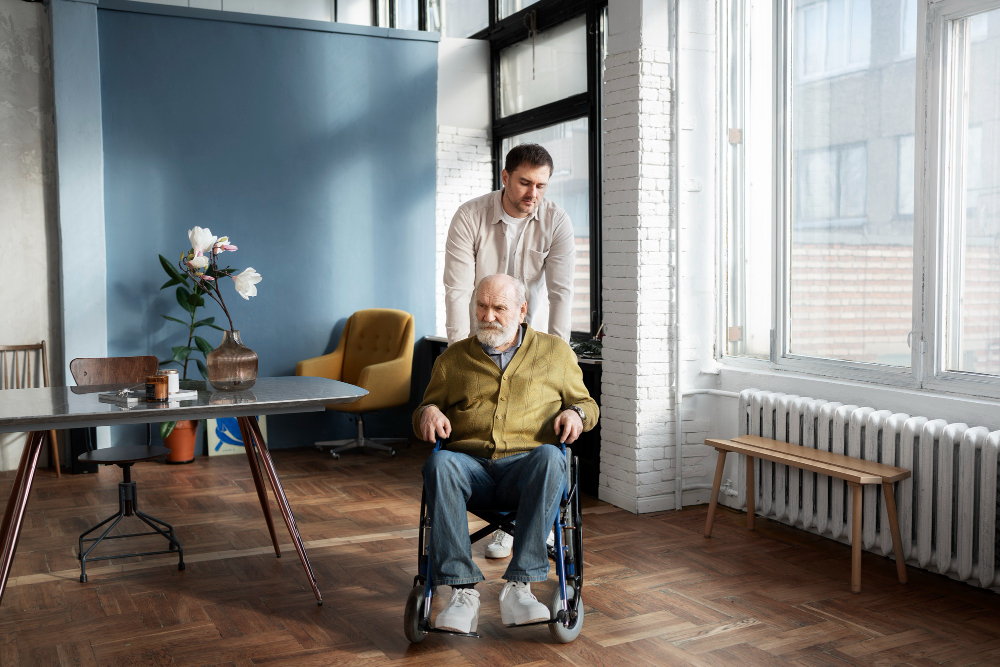Ways to Prevent Falls in Seniors and What to Do if They Occur

Falls are a significant concern for seniors, often leading to injuries that can impact their quality of life. With aging comes changes in balance, vision, and mobility, increasing the risk of falls. Fortunately, there are proactive measures you can take to minimize these risks and ensure the safety of your loved ones. This comprehensive guide highlights effective strategies to prevent falls in seniors and outlines steps to take if a fall does occur.
Understanding the Risks of Falls in Seniors
Before exploring preventative measures, it's vital to understand why falls are more prevalent among seniors. Common risk factors include:
- Decreased Muscle Strength and Balance: Muscle deterioration is a natural part of aging, affecting coordination and stability.
- Vision Impairments: Age-related eye conditions like cataracts or glaucoma can reduce depth perception, making it harder to see obstacles.
- Medication Side Effects: Some medications can cause dizziness or drowsiness, increasing fall risk.
- Chronic Health Conditions: Diseases such as arthritis or diabetes can affect mobility and balance.
Proactive Fall Prevention Strategies
1. Conduct a Home Safety Assessment
A safe home environment is crucial in minimizing fall risks. Consider the following:
- Clear Clutter: Remove objects like loose rugs, electrical cords, and clutter from walkways.
- Install Grab Bars and Handrails: Place grab bars in bathrooms next to the toilet and shower and ensure stairways have secure handrails.
- Improve Lighting: Ensure well-lit hallways and rooms, and add nightlights in bedrooms and bathrooms.
2. Encourage Regular Physical Activity
Exercise strengthens muscles and improves balance, reducing fall risk. Recommended activities include:
- Tai Chi: This gentle exercise enhances balance and coordination.
- Walking: Daily walks improve strength and cardiovascular health.
- Strength Training: Light weights or resistance bands can boost muscle strength.
3. Review Medications with a Healthcare Professional
Have a healthcare provider review all medications to identify any that may increase fall risk due to side effects such as dizziness or impaired coordination. Adjusting dosages or switching medications can often mitigate these risks.
4. Schedule Regular Vision and Hearing Checks
Frequent eye and ear examinations are essential, as poor vision and hearing can contribute to fall risks. Ensure seniors have the correct prescription eyewear and that hearing devices are functioning properly.
5. Use Assistive Devices
For seniors with mobility issues, assistive devices can be invaluable:
- Canes and Walkers: Provide extra stability and support.
- Non-Slip Shoes: Encourage seniors to wear shoes with good traction and avoid loose slippers or socks.
6. Educate on Safe Movement Techniques
Teach seniors techniques to safely move from sitting to standing positions and how to use assistive devices correctly. Professional physical therapists can provide personalized training and exercises.
What to Do if a Fall Occurs
Despite precautions, falls can still happen. Knowing how to respond effectively is crucial:
- Stay Calm and Assess the Situation
- Check for injuries such as bruises, cuts, or fractures.
- Do not attempt to get up too quickly, especially if pain or dizziness is present.
- Call for Help
- Use a medical alert system if available.
- If alone and unable to reach a phone, try to attract attention by calling out or tapping on a wall or floor.
- Get Up Safely (If Uninjured)
- Roll onto your side, then onto your hands and knees.
- Crawl to a sturdy piece of furniture and slowly rise to a sitting position.
- Seek Medical Attention
- Even if no immediate injuries are apparent, schedule a doctor’s appointment to rule out underlying issues.
The Role of Home Health Care in Fall Prevention
Engaging the services of a professional home health care provider can significantly enhance fall prevention efforts. Skilled caregivers can:
- Conduct thorough home safety assessments.
- Assist with daily activities and mobility, reducing the risk of falls.
- Provide companionship and monitor health changes, ensuring timely interventions.
Home Health Care in Philadelphia, PA
For those residing in Philadelphia, PA, Empire Home Health Care offers compassionate, reliable care tailored to the needs of seniors. Their team of professionals is dedicated to creating safe environments and supporting seniors in maintaining independence while reducing fall risks.
Conclusion
Preventing falls in seniors requires a proactive, multifaceted approach involving environmental modifications, physical activity, medical reviews, and education on safe practices. Should a fall occur, knowing the correct response can prevent further harm. For families in Philadelphia, PA, seeking reliable support, Empire Home Health Care stands as a valuable partner in ensuring the safety and well-being of their loved ones. Contact Empire Home Health Care today to learn more about their services and how they can assist in fall prevention.